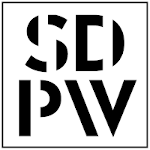Wykaz obszarów badawczych:
| # | Research Area | Dziedzina naukowa |
|---|---|---|
| 1 |
Searching for antiviral drugs - identification of new indications for drugs (drug repurposing) against COVID 19. Studies on the mast cell activation syndrome (MC) and the role of MC in the inflammatory process responsible for the severe course of COVID-19 will help identify new targets for anti-COVID-19 drugs. The study of the effect of cromoglycan (an authorized drug) as well as potential active substances - developed and tested in vitro and in vivo by our team) in inhibiting the ""cytokine storm"". Research on the inhibition of MC cell degranulation in response to SARS-CoV-2.
Collaboration with bioinformatics to select in silico substances that will be used in in vitro and ex vivo tests to confirm the mechanism of their action as well as their effectiveness in inhibiting SARS-CoV-2 infection. Analysis of the role of MC in inducing a ""cytokine storm"" (i) inhibiting it by blocking MC degranulation, and (ii) inhibiting viral replication. Understanding the molecular functions of mast cells (MC) in COVID-19 and selecting therapeutic solutions in experiments. The research will be conducted with the use of pseudo-SARS-CoV-2, as well as in the cooperation with NIZP-PZH BIP (BSL3).
|
Chemical-Sciences |
| 2 |
Understanding the action mode of oncolytic therapy, tumor biology, and specific studies of the immune response. Development of new and more effective methods of cancer treatment (e.g. pleural mesothelioma) using an oncolytic virus encoding ICOS ligand in combination with an anti-PD-1 checkpoint inhibitor. Research on the use of combined therapy: in vitro, ex vivo, and in vivo with the use of humanized mouse models.
|
Chemical-Sciences |
| 3 |
Studies on the calcineurin signaling pathway in the innate immune response over pathogenic fungal infections. Regulatory interaction analyzes of the Candida calcineurin subunit Cal albicans (coded by the CNB1 gene) with mast cells (mast cells) – sensors congenital and acquired immunity effectors. Determining whether deletion or chemical inhibition of calcineurin by a proxifylin derivative (our preliminary studies of in vitro activity and the use of molecular modeling) and other inhibitors induce defense mechanisms at the Cal entry site: immune synaptic organization, phagocytic capacity of mast cells and production of NO, ROS and IL- 10 (key in the antifungal response).
|
Chemical-Sciences |
| 4 |
Research in the field of genetic, epigenetic, and transcriptomic profiling of cancers (e.g. sarcomas, melanomas), and the implementation of targeted therapy. Based on the results of liquid biopsy (free-circulating DNA, ctDNA), the search for biomarkers significant for different types of cancer and the indication of target points for cancer therapy. Personalized medicine - precise and effective diagnosis and selection of therapies. Determination: (1) biomarker compatibility with mutations in the tumor, (2) the usefulness and confirmation of biomarkers in profiling tumor types, (3) the usefulness of biomarkers in the assessment of the efficacy of neoadjuvant treatment in the form of radiochemotherapy (+/- hyperthermia) in the form of the risk of recurrence and/or metastasis and the risk of complications in cancer patients. Transcriptomic analyses (RNA-seq), and epigenetic analyses (ONTs) of tumors. Predictive machine learning models based on Bayesian inference.
|
Biotechnology |
